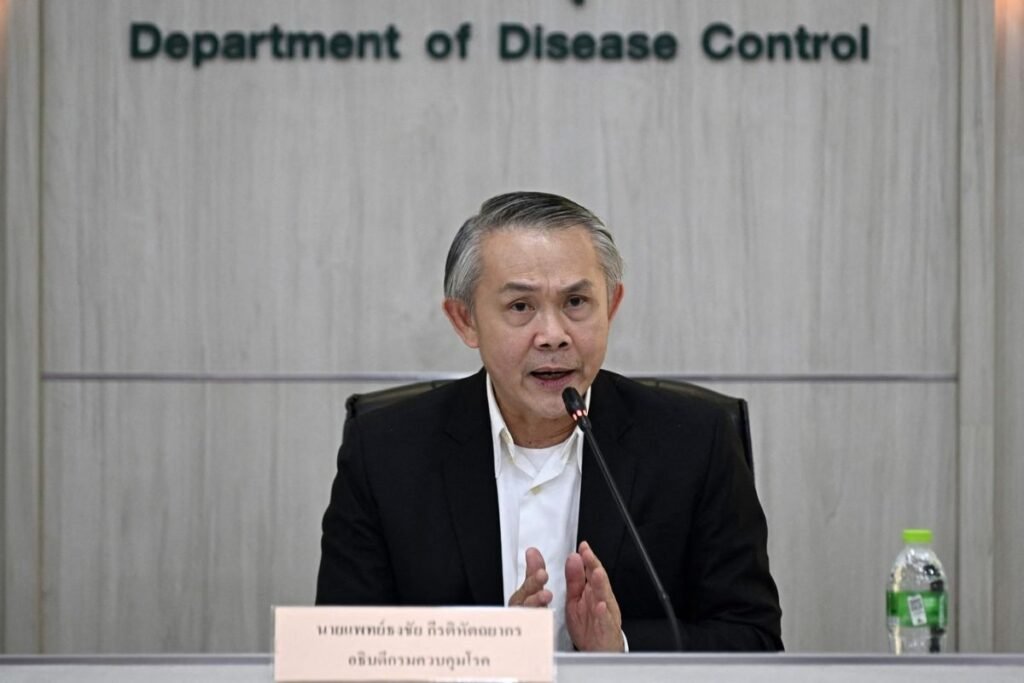(Source-www.hindustantimes.com)
On August 21, 2024, Thailand announced a suspected case of a new and more dangerous strain of mpox, a disease that the World Health Organization (WHO) has recently classified as a global public health emergency.
Suspected Case Details
The patient in question is a European national who arrived in Thailand on August 14 from an unspecified African country where the new strain of mpox is known to be circulating. According to Thongchai Keeratihattayakorn, head of Thailand’s Department of Disease Control, the individual is currently isolated in a hospital while laboratory tests are conducted to confirm the strain.
“The initial tests confirm the presence of and strain of mpox, but we are still waiting for final results to determine if it is indeed Clade 1,” Thongchai told AFP. He further explained that while the preliminary findings suggest the Clade 1 variant, the definitive confirmation will take another two days.
Surge in Strain of Mpox Cases in Africa
Mpox, a disease transmitted through contact with infected animals and human-to-human transmission via close physical contact, has seen a dramatic increase in cases and fatalities across Africa. Recent outbreaks have been reported in the Democratic Republic of Congo, Burundi, Kenya, Rwanda, and Uganda since July 2024.
The disease is characterized by fever, muscle aches, and large, boil-like skin lesions. While strain of mpox has been known for decades, the emergence of a more virulent strain, Clade 1b, has exacerbated the situation. This new strain is noted for its increased transmissibility and higher mortality rate.
Clade 1b: A More Dangerous Variant
The newly identified Clade 1b strain has heightened concerns due to its severity. According to the WHO, Clade 1b has a mortality rate of approximately 3.6%, with children being particularly vulnerable. This strain’s increased lethality and transmissibility have contributed to the recent surge in global cases.
Mpox, previously known as monkeypox, was first discovered in 1958 in Denmark, where it was identified in monkeys used for research. Since then, the disease has predominantly affected regions in Africa. However, the emergence of Clade 1b has brought renewed international attention.
Global Impact and Monitoring
As of August 15, 2024, Sweden reported the first confirmed case of Clade 1 outside of Africa, marking a significant development in the global spread of the virus. The situation underscores the need for vigilant monitoring and rapid response to emerging infectious diseases.
The WHO’s designation of mpox as a global public health emergency reflects the seriousness of the outbreak and the need for coordinated international efforts to address it. With cases and deaths rising sharply in affected regions, global health authorities are intensifying their response measures.
Thailand’s report of a suspected case of Clade 1 highlights the ongoing threat posed by this new variant and the importance of robust surveillance systems to detect and control the strain of mpox. As laboratory results are awaited, health officials continue to monitor the situation closely to manage and mitigate the potential impact of this dangerous strain.









